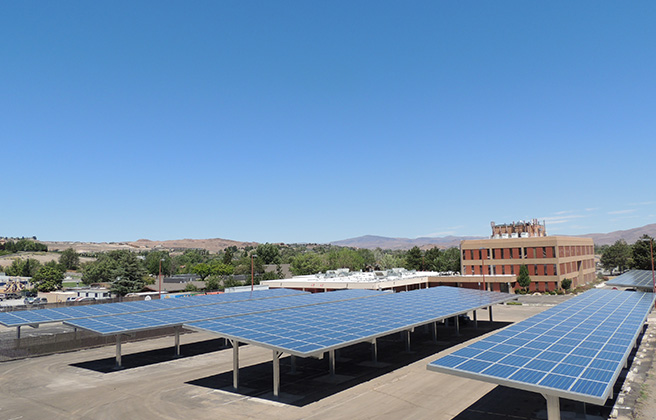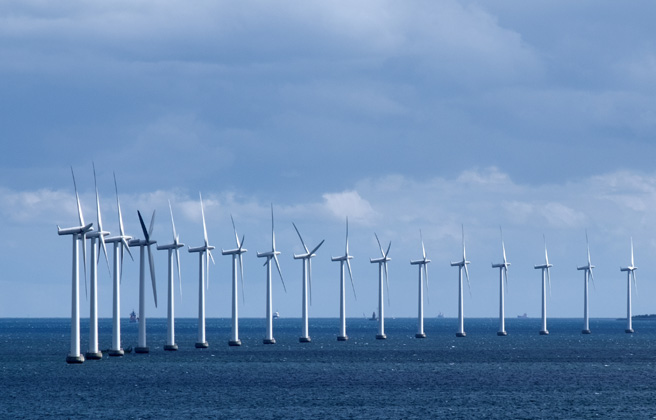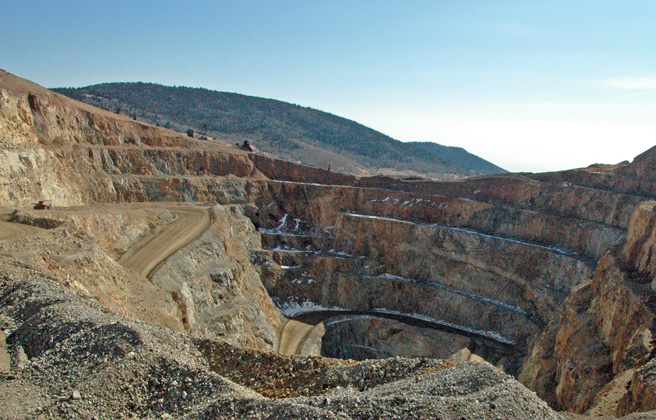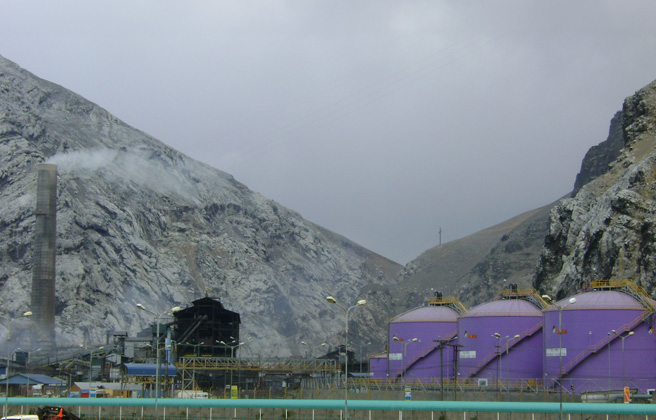Earth Week: Special Edition of Good Climate News this Week!
Apr 26, 2024
 Credit: ISKRA Photography
Credit: ISKRA Photography
Every Monday, we round up five of the best good climate news stories we’re celebrating. This week we cover EPA’s heavy-duty vehicle emissions standards, the activation of the Greenhouse Gas Reduction Fund, offshore wind’s biggest month yet, a ban on new drilling and mining in Colorado, and a ruling on the right to a healthy environment.

EPA released its final standards to cut emissions from heavy-duty trucks, buses and other large vehicles. The agency estimates that the rule will cut 1 billion tons of carbon dioxide emissions from the atmosphere through 2055, which is equivalent to more than double the total emissions from all heavy-duty trucks in 2022.
Heavy-duty vehicles are a major contributor to planet-warming and health-harming emissions, especially in communities of color and low-wealth communities who tend to live closest to highways and other transportation infrastructure utilized by heavy-duty vehicles.
By tightening emissions standards for these vehicles, EPA has taken an important step toward reducing transportation emissions and reducing the environmental injustices faced by historically excluded communities.
Source: Politico

EPA has announced $20 billion in funding from the Biden-Harris administration’s Greenhouse Gas Reduction Fund (GGRF) for projects which will collectively reduce planet-warming pollution by 40 million metric tons each year.
Funding for the program comes from the administration’s Inflation Reduction Act and will go to eight groups across the country. Those groups will then finance projects like community and residential solar, improving residential energy efficiency and housing affordability, and purchasing electric delivery vans.
To date, this will be the administration’s largest investment in building a clean energy future in historically excluded communities. Over 70% of the awards will go to communities with low-wealth.
Source: EPA, Climatewire

In just the last month, the Biden-Harris administration has overseen the completion of the nation’s first commercial-scale offshore wind development, issued final approvals for two new projects, and proposed auctions for four new lease areas in the Gulf of Mexico.
The progress that the administration has made on offshore wind in the last month showcases President Biden’s commitment to a clean energy future, and is indicative of the success and popularity of his affordable clean energy plan across the country.
Source: Canary media, Department of the Interior (here and here)

The Biden-Harris administration has finalized a 20-year ban on new oil and gas drilling and mining in Colorado’s Thompson Divide. The ban covers more than 220,000 acres of pristine federal land that provides important wildlife habitat and cleaner air and water for surrounding communities.
The ban is the result of a “decades-long grassroots effort from a diverse stakeholder group, including hunters, anglers, ranchers, conservation groups, and local governments,” said Secretary of the Interior Deb Haaland, and advances the administration’s goal of conserving 30% of U.S. lands and waters by 2030.
Source: Greenwire

In a victory for the people of La Oroya, Peru, the Inter-American Court of Human Rights has ruled that the Peruvian government must take responsibility for ignoring harm to residents’ physical and mental health caused by a metallurgical complex in the area.
Pollution from the smelting and refining plant has been tied to respiratory, heart and skin diseases, as well as two deaths, among the town’s residents. The court’s ruling is a victory in the residents’ 20-year legal battle to force the government to act. The court has ordered Peru’s government to acknowledge their inaction, compensate victims, hold violators accountable, and implement environmental monitors, among other remedies. This is a landmark case that sets the precedent for the right to a healthy environment.
Although the court can’t enforce compliance, it can notify the Organization of American States who can exert pressure on Peru to comply with the ruling.
Source: Inside Climate News
Check out the Power Source Blog and follow us on Instagram or Twitter for more Good Climate News every Monday.